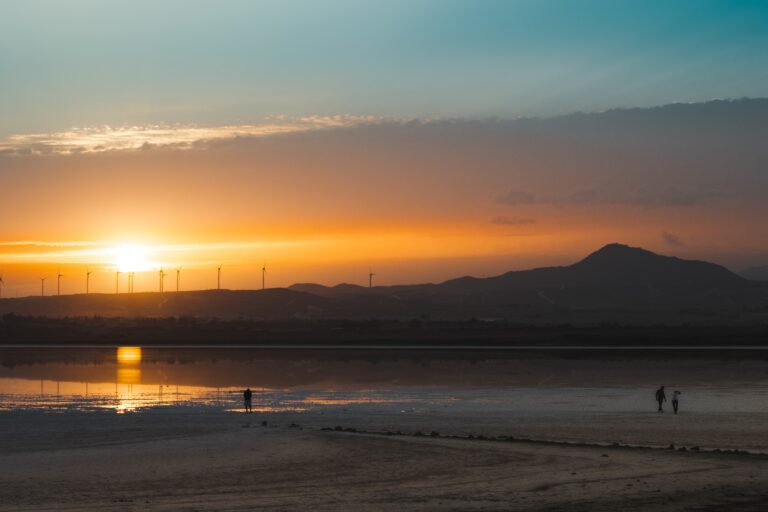Project Description
In recent years, the eastern Mediterranean region has continued to experience a more severe, long-term drought, as reflected through as a percentage reduction in precipitation, than any other region in the world. Climate models predict this pattern will continue. Predicting how climatic changes will impact ecosystems and biological communities proves challenging, in part due to our limited understanding of their level of resilience. Seasonal salt lakes occur widely across the eastern Mediterranean where they perform important environmental functions. These extreme environments have variable water levels which fluctuate seasonally between wet and dry phases and are often characterised by relatively simple food webs involving specialised species. For example some species of brachiopods (eg Branchinella spinosa) have adapted by producing eggs that are resistant to desiccation, yet can remain viable, buried in the sediment for many years. Furthermore, the unique ecological conditions present at these saline lakes make them very important from a biodiversity perspective, in that they host large numbers of resident and migratory birds who use these wetlands on a seasonal basis. This includes large numbers (>20000) of greater flamingos (Phoenicopterus roseus), rendering them of international importance; on the island of Cyprus, the second largest saline lake, is a designated Ramsar. On the other hand, very little is known about the role of primary producers, algal diversity and how these influence the ecology of hypersaline lakes. Further research is needed concerning their role, and how they are influenced by abiotic ecosystem elements, and how in turn these producers influence higher trophic levels in food lake food webs. This project will aim to characterise the algal diversity of these saline lake lakes, using a combination of microscopy, algal culturing, and DNA barcoding, and link findings to abiotic ecosystem elements.
Research will aim to characterise near-natural conditions and compare them to those in areas impacted by human activity. For centuries, the hydrology of these shallow saline lakes, their salinity and water levels have been impacted by the combined effects of anthropogenic activities and climatic factors. Activities will aim to separate local anthropogenic influences from wider ambient environmental conditions. Accordingly, these seasonal wetlands display potential to act as reference systems in studying ecosystem resilience in response to climate and environmental change.
The project will involve both fieldwork, lab analyses and statistical modelling, including species population and community dynamics. Fieldwork will take place on the island of Cyprus, which has a number of salt lakes, which differ significantly in terms of age, environmental characteristics/ human impacts and community composition.
Hydrological / water quality monitoring will be implemented simultaneously with biological monitoring, to generate continuous records of daily, seasonal and interannual variations in water level, and water quality. Resulting hydrological patterns will be examined to assess their influence on ecological responses. Hydrological sampling will be carried out over a two year period, starting in the summer, when there will be at the minimum water in all lakes, and this will be completed two summers later, when the water levels will have had decreased again following flooding between autumn and spring.
CANDIDATE BACKGROUND
It is expected that the PhD candidate will have a strong interest in fieldwork and will be willing to spend time in Cyprus collecting data on both the ecological communities (from algae and invertebrates, to birds), as well as taking hydrological measurements from these saline lakes. The PhD candidate will have a strong interest in field ecology as well as quantitative analysis and ecological and hydrological modelling.
Photo by Vladyslav Melnyk on Unsplash.com
Supervisors
Vasilis LoucaPrimary Supervisor: | Profile: Vasilis Louca Email: v.louca@abdn.ac.uk Institution: University of Aberdeen Department/School: School of Biological Sciences |
Ray FlynnSecondary Supervisor: | Profile: Ray Flynn Email: r.flynn@qub.ac.uk Institution: Queen's University, Belfast Department/School: School of Natural and Built Environment |
Frithjof KuepperAdditional Supervisor: | Profile: Frithjof Kuepper Email: fkuepper@abdn.ac.uk Institution: University of Aberdeen Department/School: School of Biological Sciences |
References
Badosa, A., et al. 2006. Nutrients and zooplankton composition and dynamics in relation to the hydrological pattern in a confined Mediterranean salt marsh (NE Iberian Peninsula). Estuarine, Coastal and Shelf Science, 66(3-4), 513-522
Christia, et.al., 2011. A survey of the benthic aquatic flora in transitional water systems of Greece and Cyprus (Mediterranean Sea). Bot. Mar. 54, 169–178
Karagianni, A., et.al 2018. Zooplankton communities in Mediterranean temporary lakes: the case of saline lakes in Cyprus. IJL p. 14
QUADRAT Themes
- biodiversity
- earth-systems






















































